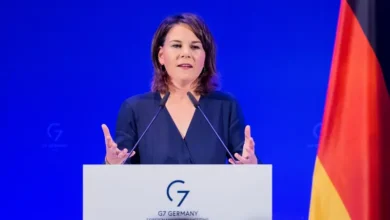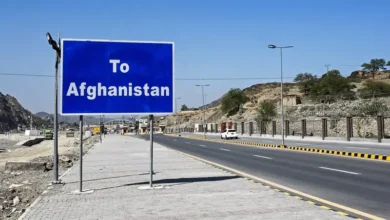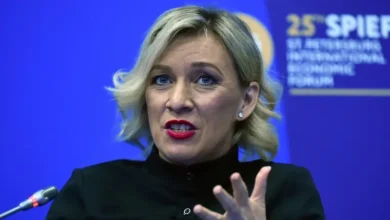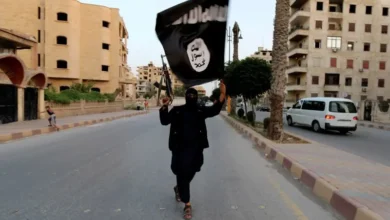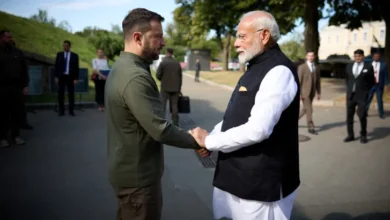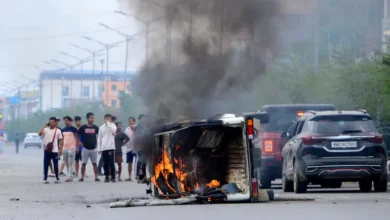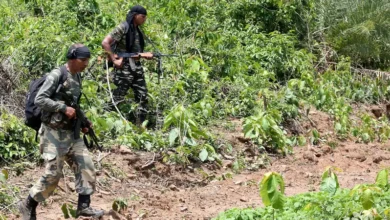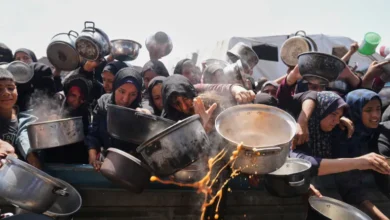Analysis: Middle East policy a higher priority for Trump than anticipated
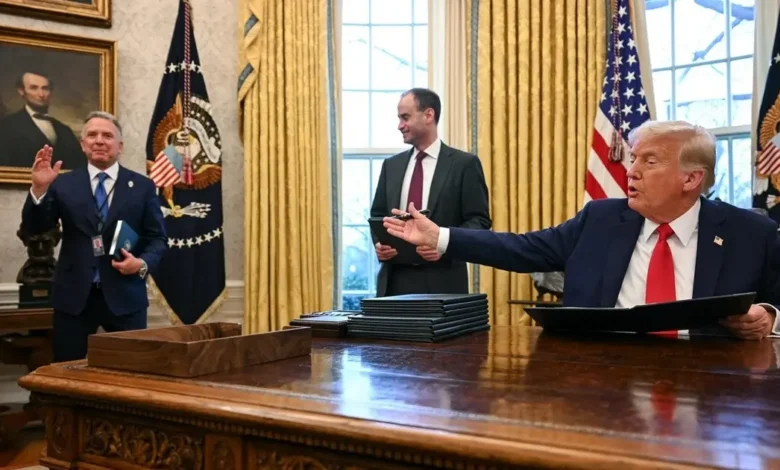
After taking office, US President Donald Trump made a series of early foreign policy moves, including deploying military personnel to the southern border with Mexico and focusing on the deportation of illegal immigrants. However, amid these efforts, the Middle East quickly became a higher priority than many had anticipated.
While he vowed to do this on the campaign trail, foreign policy observers were unclear whether the Middle East would figure high on his priorities despite a handful of his first nomination announcements after his election being individuals on his Middle East team. Before taking office, Trump’s special envoy for the Middle East played an instrumental role alongside the Biden administration in brokering the Gaza ceasefire. Many say the deal would not have been possible without the push from Trump’s envoy, Steve Witkoff.
The president’s first call with a foreign leader was made to Saudi Arabia’s Crown Prince Mohammed bin Salman, and just this week, Trump welcomed Israel’s Prime Minister Benjamin Netanyahu as the first foreign leader to the White House. Next week, Trump is slated to meet Jordan’s King Abdullah at the White House, and reports indicate that Egyptian President Abdel Fattah al-Sisi will be invited the following week.
On Thursday, the White House said Bahrain’s King Hamad bin Isa al-Khalifa will also visit next week.
Top officials on Trump’s Middle East team will travel this week to Lebanon before moving on to Israel and possibly Jordan. Morgan Ortagus, Witkoff’s deputy, and the White House’s Middle East director, Eric Trager, are en route to Beirut. Officials said the deputy assistant secretary of state for Syria and the Levant, Natasha Franceschi, will also be on the trip. Witkoff will likely join the delegation in Israel, officials said.
The delegation will make the new US stance clear as it pertains to Hezbollah’s role in any new government, and it will also look for updates on the efforts of the Lebanese Armed Forces (LAF) to complete their deployment along the southern border with Israel.
A US-brokered ceasefire ended the Hezbollah-Israel war on Nov. 27, 2024. Under the terms of the agreement, Israel was to withdraw its forces from Lebanon within 60 days to be replaced by the Lebanese Armed Forces (LAF). Hezbollah was also required to withdraw at least 20 miles from the border with Israel and dismantle its military infrastructure.
On the day the deal was set to expire last month, the White House said a “short, temporary” extension was needed until Feb. 18. Reasons for the extension included the LAF not fully deploying south of the Litani River and replacing vacated Hezbollah outposts.
Officials familiar with US intelligence said that the LAF deployment has significantly increased and improved over the last few weeks. During a call between US and Lebanese officials on Wednesday – which has not been previously reported – Beirut said if Israel did not fully withdraw by Feb. 18, it would be a gift to Hezbollah. The call, which has not been previously reported, was between the acting assistant secretary for Near Eastern affairs, Tim Lenderking, and aides to the Lebanese president, Joseph Aoun.
Separately, Trump asked the US ambassadors to Jordan and Saudi Arabia to step down immediately after becoming president. All ambassadors submit their resignations when a new administration takes office, but these two were immediately accepted. There is also dissatisfaction among US officials at the State Department and the White House with the messages passed on to Lebanese officials by the US Ambassador to Beirut, Lisa Johnson, a career diplomat appointed by the Biden administration.
Rubio to the Middle East
Meanwhile, the top US diplomat is expected to make his first trip to the Middle East later this month. According to sources familiar with the matter, Secretary of State Marco Rubio is planning to make stops in Riyadh, Abu Dhabi, Doha and Tel Aviv. The trip has not been finalized or confirmed, but Rubio is expected to attend the Munich Security Conference before continuing to the Middle East. It is unclear whether or not he will visit the West Bank and meet with any Palestinian officials.
Trump’s recent proposal for the US to take over the Gaza Strip and displace the millions of Palestinians living there will undoubtedly be a focus of the talks Rubio will have during his trip. During a joint press conference on Tuesday night with Israeli Prime Minister Benjamin Netanyahu, the American president said Gaza was a demolition site and Palestinians living there should be sent to different countries to be able to live a better life. He also suggested US troops could be deployed if needed, although he and the White House later backtracked on the need for any US boots on the ground.
Trump has repeatedly suggested that Egypt and Jordan take in Palestinians displaced from Gaza under his plan. This has been shot down and condemned by the entire Arab world.
Saudi Arabia’s former spy chief, Prince Turki Al-Faisal, said the US president would “get an earful” from the Saudi leadership if he were to visit Riyadh “about the unwisdom of what he is proposing and the downright unfairness and injustice that is really signified and totally placed in this proposal of ethnic cleaning from not only Gaza but what is happening in the West Bank.”
James Jeffrey, former US Ambassador to the D-ISIS Coalition under the first Trump administration, said he does not take the recent proposal from Trump to take over Gaza seriously. “But it’s clear he’s focusing on the Middle East. That’s good, but also understandable,” the former envoy to Turkey and Iraq said.
Other pressing issues and priorities for the Trump administration, such as trade with China and the Russia-Ukraine war, are “much bigger problems,” Jeffrey said, adding that it was clear the Trump team had not figured them out yet.
Nevertheless, Trump has placed significant focus on the Middle East since taking office. “The Middle East just requires building on successes of Trump (Abraham Accords) and Biden (defeat of Iran’s proxy network),” Jeffrey said. Trump mediated the Abraham Accords, establishing diplomatic relations between Israel and the United Arab Emirates, Bahrain and Morocco during his first term.
Iran’s so-called axis of resistance was all but decimated near the end of the Biden administration after successive Israeli blows to Hamas in Gaza, the decimation of Hezbollah’s top leadership and weapons stockpiles in Lebanon, and the US-led maritime task force to counter Houthi attacks in the Red Sea. Trump has already redesignated Yemen’s Houthis as a foreign terrorist organization (FTO) and revived the maximum pressure campaign against Iran.
The United States Central Command (CENTCOM) on Thursday posted a picture of the USS Harry S. Truman aircraft carrier in the Middle East and said, in a post in Arabic, that the military was committed to its mission in the region.
A source familiar with US military planning told Al Arabiya English that the Trump administration would take a different approach to the Houthis than the Biden administration. “We will not sit back and wait for attacks like [the Biden administration]. Expect us to escalate and intensify in the coming weeks,” the source said.
Despite significant challenges in other regions, the Trump administration’s growing focus on the Middle East reflects both strategic priorities and a desire to build on previous successes. As events continue to unfold, the outcome of these diplomatic efforts could reshape the region in ways both expected and unforeseen.
